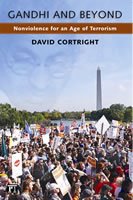Robert Fisk:
How easy it is to snap off the history of the Palestinians, to delete the narrative of their tragedy, to avoid a grotesque irony about Gaza which – in any other conflict – journalists would be writing about in their first reports: that the original, legal owners of the Israeli land on which Hamas rockets are detonating live in Gaza.
That is why Gaza exists: because the Palestinians who lived in Ashkelon and the fields around it – Askalaan in Arabic – were dispossessed from their lands in 1948 when Israel was created and ended up on the beaches of Gaza. They – or their children and grandchildren and great-grandchildren – are among the one and a half million Palestinian refugees crammed into the cesspool of Gaza, 80 per cent of whose families once lived in what is now Israel. This, historically, is the real story: most of the people of Gaza don't come from Gaza.
But watching the news shows, you'd think that history began yesterday, that a bunch of bearded anti-Semitic Islamist lunatics suddenly popped up in the slums of Gaza – a rubbish dump of destitute people of no origin – and began firing missiles into peace-loving, democratic Israel, only to meet with the righteous vengeance of the Israeli air force. The fact that the five sisters killed in Jabalya camp had grandparents who came from the very land whose more recent owners have now bombed them to death simply does not appear in the story.
Both Yitzhak Rabin and Shimon Peres said back in the 1990s that they wished Gaza would just go away, drop into the sea, and you can see why. The existence of Gaza is a permanent reminder of those hundreds of thousands of Palestinians who lost their homes to Israel, who fled or were driven out through fear or Israeli ethnic cleansing 60 years ago, when tidal waves of refugees had washed over Europe in the aftermath of the Second World War and when a bunch of Arabs kicked out of their property didn't worry the world.
Well, the world should worry now. Crammed into the most overpopulated few square miles in the whole world are a dispossessed people who have been living in refuse and sewage and, for the past six months, in hunger and darkness, and who have been sanctioned by us, the West. Gaza was always an insurrectionary place. It took two years for Ariel Sharon's bloody "pacification", starting in 1971, to be completed, and Gaza is not going to be tamed now.
Alas for the Palestinians, their most powerful political voice – I'm talking about the late Edward Said, not the corrupt Yassir Arafat (and how the Israelis must miss him now) – is silent and their predicament largely unexplained by their deplorable, foolish spokesmen. "It's the most terrifying place I've ever been in," Said once said of Gaza. "It's a horrifyingly sad place because of the desperation and misery of the way people live. I was unprepared for camps that are much worse than anything I saw in South Africa."
Of course, it was left to Israeli Foreign Minister Tzipi Livni to admit that "sometimes also civilians pay the price," an argument she would not make, of course, if the fatality statistics were reversed. Indeed, it was instructive yesterday to hear a member of the American Enterprise Institute – faithfully parroting Israel's arguments – defending the outrageous Palestinian death toll by saying that it was "pointless to play the numbers game". Yet if more than 300 Israelis had been killed – against two dead Palestinians – be sure that the "numbers game" and the disproportionate violence would be all too relevant. The simple fact is that Palestinian deaths matter far less than Israeli deaths. True, we know that 180 of the dead were Hamas members. But what of the rest? If the UN's conservative figure of 57 civilian fatalities is correct, the death toll is still a disgrace.
To find both the US and Britain failing to condemn the Israeli onslaught while blaming Hamas is not surprising. US Middle East policy and Israeli policy are now indistinguishable and Gordon Brown is following the same dog-like devotion to the Bush administration as his predecessor.
As usual, the Arab satraps – largely paid and armed by the West – are silent, preposterously calling for an Arab summit on the crisis which will (if it even takes place), appoint an "action committee" to draw up a report which will never be written. For that is the way with the Arab world and its corrupt rulers. As for Hamas, they will, of course, enjoy the discomfiture of the Arab potentates while cynically waiting for Israel to talk to them. Which they will. Indeed, within a few months, we'll be hearing that Israel and Hamas have been having "secret talks" – just as we once did about Israel and the even more corrupt PLO. But by then, the dead will be long buried and we will be facing the next crisis since the last crisis.



















